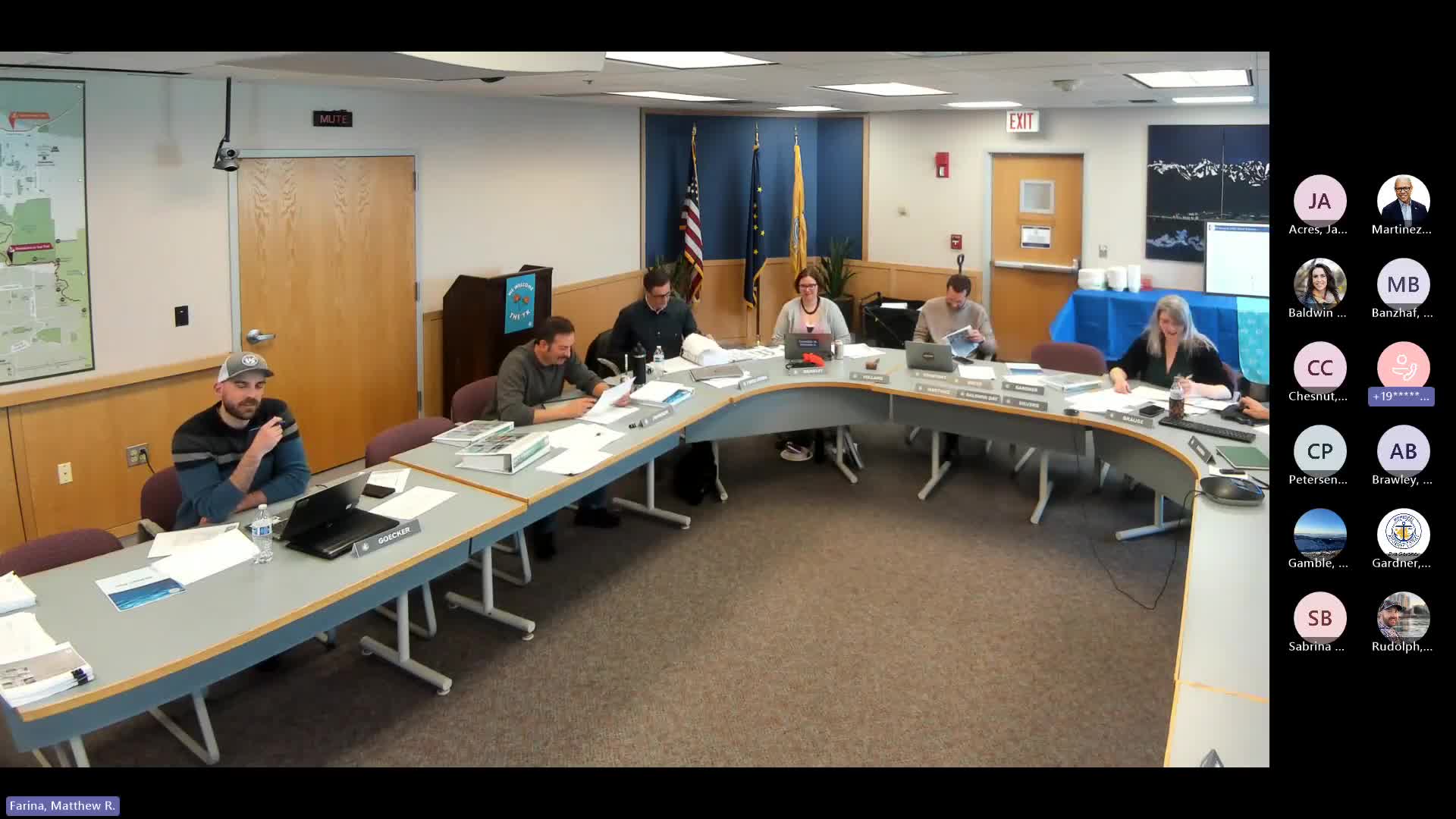Assembly reviews alcohol‑tax changes as mayor’s office ties funds to homelessness and outreach strategy
Get AI-powered insights, summaries, and transcripts
Subscribe
Summary
Anchorage — Assembly members heard a detailed briefing on the municipal alcohol‑tax fund and how the administration plans to use it in 2026 to support shelter, outreach and housing services.
Anchorage — Assembly members heard a detailed briefing on the municipal alcohol‑tax fund and how the administration plans to use it in 2026 to support shelter, outreach and housing services.
OMB staff told the assembly the alcohol‑tax budget proposal reduces evidence‑based community grants from $2.0 million in 2025 to $1.5 million in 2026 and moves some crisis‑response operations previously paid from the alcohol‑tax fund into the municipal operating budget. The proposal includes a new $500,000 line to position a multidisciplinary outreach team at the Third Avenue Resource and Navigation Center and retains funding for a mix of congregate and noncongregate shelter operations. The proposed 2026 alcohol‑tax spend is $15.9 million, with a small projected year‑end fund balance.
The mayor’s office presented the spending in the context of two city strategies — the homelessness & health strategy and the Safe Anchorage public‑safety plan — and described how the alcohol‑tax allocations are intended to create an integrated safety net. Pia Agnewbemben, a special assistant to the mayor, said the administration is aligning investments to improve outreach efficiency, expand crisis care access and increase year‑round shelter capacity. She described planned memorandum‑of‑agreements and leased space at Third Avenue to host outreach partners and make referrals easier for teams in the field.
Key changes explained to the assembly include: - A $500,000 reduction to the community grants line (evidence‑based grants) from $2.0M to $1.5M, described by OMB staff as a timing and prioritization decision tied to program rollout and prior year carryover; the administration said it will revisit use of the line during first‑quarter revisions if needed. - Movement of the Mobile Crisis Team (MCT) and associated operations into recurring municipal operating budgets where those services will be maintained as ongoing functions rather than one‑time alcohol‑tax expenditures. The administration said some MCT expansion costs have already been absorbed into general government operating lines. - A new $500,000 appropriation to support a multidisciplinary outreach team based at the Third Avenue Resource and Navigation Center to improve co‑location of services and case handoffs. Administration materials indicate that portion will largely fund space and partner coordination rather than full salaries for all team members. - Reallocation among homelessness‑pillar recipients: funding increases and reductions were explained as program design shifts, including a $400,000 increase proposed for Christian Health Association for overnight shelter and a reduction for a Coalition to End Homelessness contract reflecting a refocus on data and monitoring.
OMB staff emphasized that the alcohol‑tax budget as presented uses named recipients in Appendix R but that the administration plans to present amended budget wording at the assembly’s amendment work session so line titles focus on outcomes (for example, “overnight shelter operations”) alongside recipients. That change, staff said, would not alter dollar amounts but would clarify intended uses for the public.
Assembly members asked procedural and programmatic questions: several sought clarity on which services remain municipal obligations, which are grant‑funded, and how the proposed switch of MCT costs to operating affects future alcohol‑tax balances. OMB staff said the final accounting of 2025 actuals (available in January) may yield additional fund balance fluctuations that would be considered in first‑quarter revisions.
The administration also briefed members on other resources that feed the safety net: HOME, CDBG and ERA funds have been used for housing moves and eviction prevention; the administration reported ERA/HOME interventions helped about 718 households starting in May and estimated roughly 65% retention among those assisted. The mayor’s office said larger clinical stabilization centers — planned by Southcentral Foundation and Providence — are expected to open in 2026 and that federal grant opportunities could improve information sharing and clinical billing for crisis services.
What happens next: staff said they will present a revised Appendix R that emphasizes outcomes rather than only named organizations at the assembly amendments session on Nov. 7, and first‑quarter budget revisions (April cycle) will incorporate implementation details or revenue changes, including anticipated impacts from a solid‑waste surcharge that could replace or supplement an alcohol‑tax line for park/camp cleanup.
